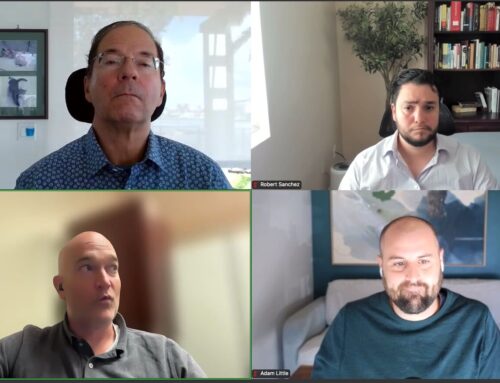Effective SEO is about driving more pet owners from the search engines to your animal hospital’s website. This is massively valuable for your business, because with good SEO and a focus on conversion, your veterinary clinic will enjoy a considerable increase in actual business. In this article, you’re going to learn the basics of how SEO works, along with actionable tips that you can implement today to give your website a boost in the rankings!

Google’s ranking algorithm essentially looks for signals to determine where to rank your veterinary website amongst your competitors. These signals can be grouped into four classes. If you want to dominate your market, you should make sure that you have an intelligent strategy for each class of signals. We’ll go over the four classes below:
On Page Factors
This group is about your actual website’s performance. One of the most important metrics in this group is the quality of your website’s software engineering. Google wants to see that your code is modern, lean and professional. If it’s sloppy or ancient, you’re sure to be dinged. Another factor Google values is the actual structure of your page. Your site’s hierarchy of pages should be set up in a logical, intuitive way. For example, every page on your website should be accessible through a menu, submenu, or link on the site.
The most important on page factor has to do with the user experience though. Google puts significant weight on how users interact with your website in order to determine where to rank you. They pay serious attention to the stay time on your website, because that’s a great gauge of how useful and engaging the search traffic is finding your site. Having a phenomenal stay time on your website will be deeply beneficial for your website’s search rankings.
Social Media

This is the most recent addition to the main factors of SEO. In the last few years, social media has fundamentally changed the way people interact with each other online. Because of this, Google now takes your social activity as a powerful tool to determine your website’s search ranking. Facebook and Twitter are probably the most important sites for your veterinary hospital to engage with clients on, though Pinterest and Instagram are quickly growing in relevance.
Google will look at metrics such as the size of your following, the frequency of your posts, and the reaction and engagements that your posts get. They essentially want to see that you have a large, interested following that frequently engages with your posts.
Backlinks
This was actually Google’s pioneering innovation. You may recall the time (around the year 2000) that there were a multitude of search engines (like altavista and askjeeves), and obvious leader. Then, all of the sudden, Google disrupted the entire industry and became one of the world’s most valuable companies. Their pioneering insight was the use of backlinks – a reciprocal algorithm that weights a website’s authority based on the volume and authority of other websites linking to it.
Google essentially wants to see that other relevant and authoritative websites are linking to your website, because that means you’re probably pretty credible. The links range in value, but you can accumulate them from blogs, local businesses, online directories, government agencies, and many more types of digital activity.
Content

It’s listed last here, but it is the most important ongoing activity you can undertake for your SEO. As the saying goes “Content is King.” Google expects the top ranking website to be the leader of their market. And leaders write. Voluminously.
Really this is important for a couple reasons. First, when Google sees that your website is regularly being updated with unique and valuable content, they believe your website to be cared for and authoritative. Secondly, the stream of content will also help you rank for a much greater breadth of keywords, since your content is likely to span a number of topics that most veterinary websites don’t.
Actionable Advice
Alright, so you now have a good idea of how the four classes of signals in SEO operate. Now for the fun part – let’s give you some actionable advice on how to take advantage of this new-found knowledge.
On Page Factors

The most obvious advice is to make sure that your web developers use modern techniques and are skilled engineers. But if you don’t want to (or can’t) spring for a new website build, the best thing you can do is to make your website more image/video oriented. When you make images and video the central experience of your website, you dramatically increase the stay time on your site. This is a very large signal to Google that your website provides a great user experience, thereby boosting your website’s rankings.
Social Media
The best way to build your social presence is to promote it in the animal hospital (even just putting stickers up helps!) and actively posting across the social networks. You’ll definitely want a Facebook and Twitter profile, and it would help to user Pinterest or Instagram. It actually doesn’t have to be that much work, either. With a (free!) tool like Hootsuite, you can schedule posts to go out in advance to each of your social networks. A good rule of thumb is to post at least 3 times a week, and peek days are typically Wednesdays, Saturdays and Sundays – though your demographic may differ.
Backlinks
The best first step you can take is to check your website’s NAP (name, address and phone number) backlink directory through a free resource like this!
If you score below 90%, you’ll want to spend some time submitting the correct information to the directories on there. This can actually have a pretty large effect on your local SEO. Beyond that, try to get local businesses that are connected to what you do (like animal shelters and rescue agencies) to link to your website.
Content

Unless you’re in a one horse town, you need an active blogging campaign to maintain and increase your relevancy on the search engines. The blog campaign should be educationally focused, and should work to raise awareness on important issues that pet owners should know about. For example, many pet owners aren’t aware of the connection between periodontal disease and organ damage. Write a blog post about that! Or if it’s parasite season, you can write a blog post about parasite awareness. Use it as a tool to keep pet owners educated and responsible, and it will benefit your SEO immensely.
You’re now armed with valuable knowledge and methodology that 95% of veterinarians have no clue about. Now go forth and prosper!






Leave A Comment